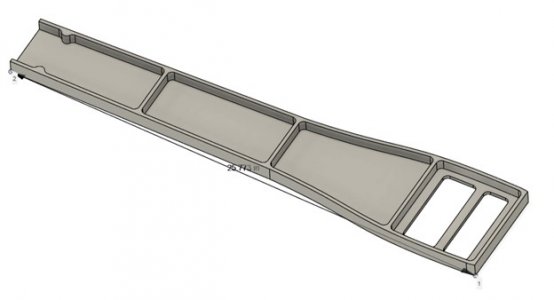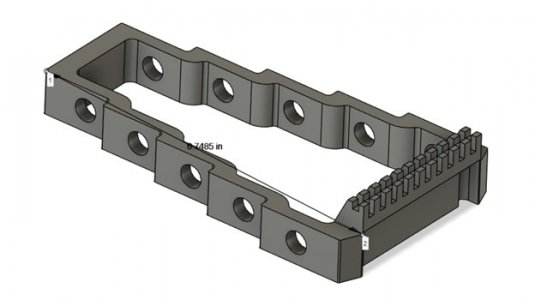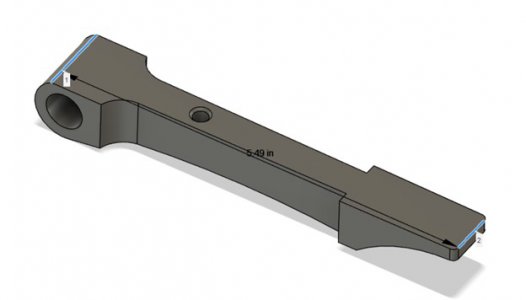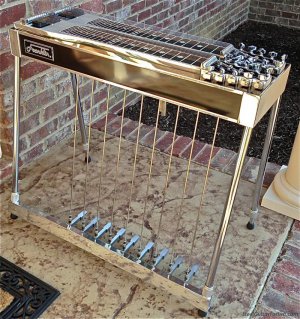Hello, new forum member here. I also posted on the "Introduce Yourself" page.
I'm trying to figure out what machine(s) I need to make the attached 6061 aluminum parts. A few questions:
1) Would it be impractical for a beginner to attempt these parts on a manual mill? My initial idea was to get X-power feed and move the Y-travel for the curves, but I suspect I need to go CNC. Is that right?
2) My largest part is 26" long. Do I need to cough up the $$ for a machine with 30" X-travel, or can I get good CNC results with multiple setups? "Good" to me would be a tight enough tolerance to line up the screw holes for mounting the neck and keyhead to the maple body of the guitar.
My initial budget was ~3k for making chips fly, but now I'm thinking more than double that . Any suggestions? Thanks in advance!
. Any suggestions? Thanks in advance!
I'm trying to figure out what machine(s) I need to make the attached 6061 aluminum parts. A few questions:
1) Would it be impractical for a beginner to attempt these parts on a manual mill? My initial idea was to get X-power feed and move the Y-travel for the curves, but I suspect I need to go CNC. Is that right?
2) My largest part is 26" long. Do I need to cough up the $$ for a machine with 30" X-travel, or can I get good CNC results with multiple setups? "Good" to me would be a tight enough tolerance to line up the screw holes for mounting the neck and keyhead to the maple body of the guitar.
My initial budget was ~3k for making chips fly, but now I'm thinking more than double that





